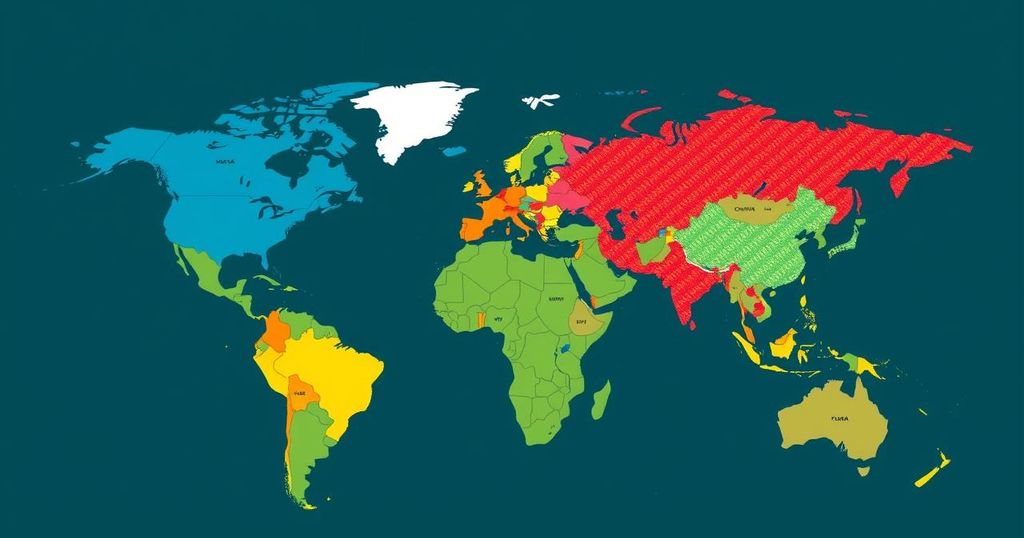COP29: Developed Nations Pledge $300 Billion for Climate but Face Criticism
At COP29, developed nations pledged $300 billion annually for climate action, aiming to increase this to $1.3 trillion by 2035. However, developing countries criticized the pledge as inadequate. U.N. officials expressed concern over insufficient funding to meet climate challenges. Tensions arose as vulnerable nations demanded more substantial contributions from wealthier countries amid rising global temperatures expected in 2024.
At the 29th United Nations Climate Change Conference (COP29) held in Baku, developed countries pledged to allocate $300 billion annually to combat climate change, with a vision to raise this funding to $1.3 trillion by the year 2035. This financial commitment, however, has faced considerable backlash from developing nations, who argue that the amount is far too insufficient to address the pressing climate challenges they confront.
U.N. Secretary-General Antonio Guterres acknowledged the pledge but articulated concern regarding its ambitiousness, indicating that the agreed-upon funding is inadequate in relation to the immense hurdles presented by climate change. Simon Stiell, Executive Secretary of the United Nations Framework Convention on Climate Change (UNFCCC), similarly urged nations to enhance their efforts ahead of COP30, emphasizing the substantial work that remains to be undertaken before the next conference.
Representatives from developing nations voiced their dissatisfaction with the agreement. India’s delegate, Chandni Raina, labeled the deal as an “optical illusion,” maintaining that it does not sufficiently encompass the scale of the challenges they face. Tina Stege, representing the Marshall Islands, criticized the funding plan as insufficient, emphasizing that it leaves vulnerable countries with a mere fraction of the necessary resources. Furthermore, delegates from African nations articulated similar frustrations, with Sierra Leone’s representative accusing developed countries of demonstrating a lack of goodwill toward climate financing.
The discussions at COP29 underscore a significant ongoing conflict between developed and developing nations regarding climate financing. Vulnerable countries assert that they disproportionately endure the impacts of climate change while wealthier nations fail to provide adequate support. Such tensions are further exacerbated by recent reports confirming that 2024 is poised to be one of the hottest years on record, with global temperatures thus far exceeding the long-term average by 0.71°C during the initial ten months.
As COP30 approaches, there will be mounting pressure on developed nations to uphold their pledges and adopt a more equitable approach to climate financing. Developing countries are explicitly calling for increased contributions from major polluters, including the United States, Canada, China, and Gulf states. This situation remains critical as the clock ticks down to the next climate summit, demanding swift action and cooperation in addressing climate change effectively.
The article discusses the recent developments from COP29, focusing on the commitments made by developed nations concerning climate finance. Climate change poses significant threats worldwide, especially to developing nations that often experience the most severe consequences. The financial pledges made at COP29 are intended to mitigate these impacts, yet they have drawn criticism for being inadequate. The context of pressing climate conditions and ongoing debates around fairness in climate financing reflects a deeper divide between wealthier and poorer nations in global climate negotiations.
In summary, while the $300 billion pledge from developed nations at COP29 represents a step towards climate financing, it has been criticized by developing countries as insufficient amid an escalating climate crisis. The remarks from U.N. officials highlight the gap between current commitments and the urgent need for enhanced financial support. Moving forward, the pressure on developed nations will increase as expectations grow for them to fulfill their promises and provide more equitable contributions to global climate efforts.
Original Source: www.turkiyetoday.com




Post Comment